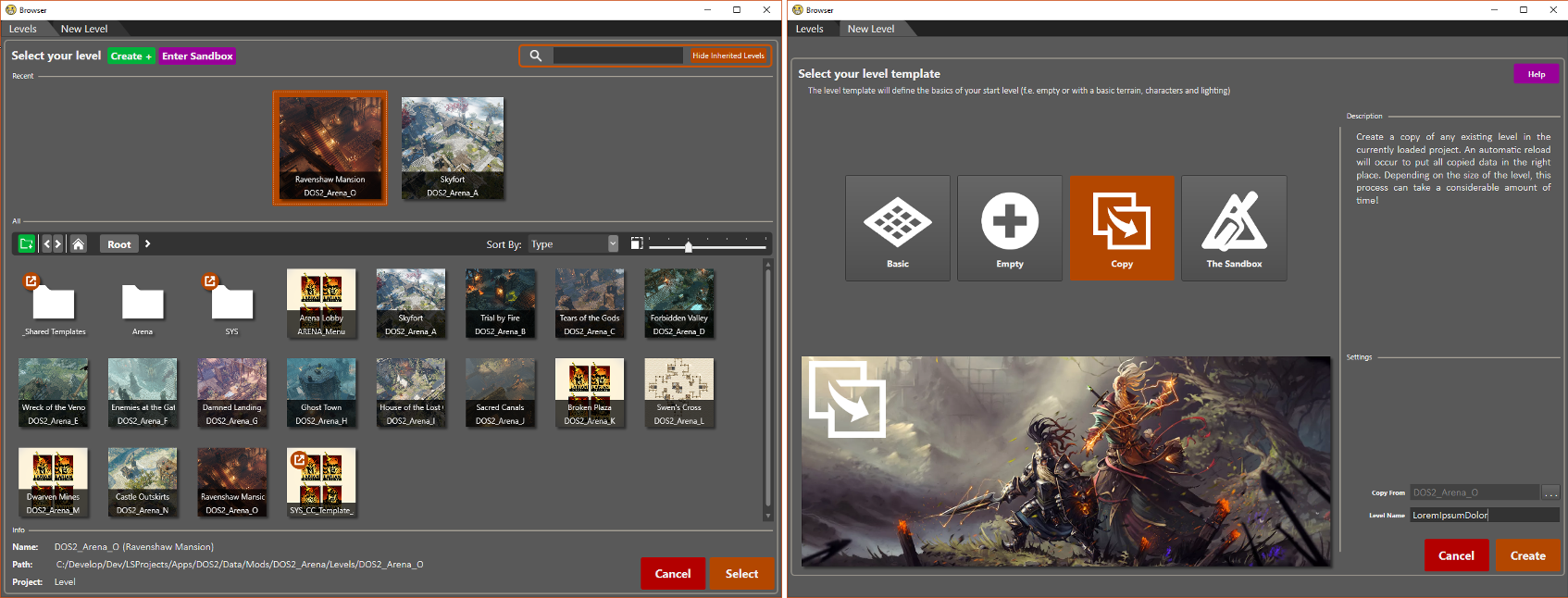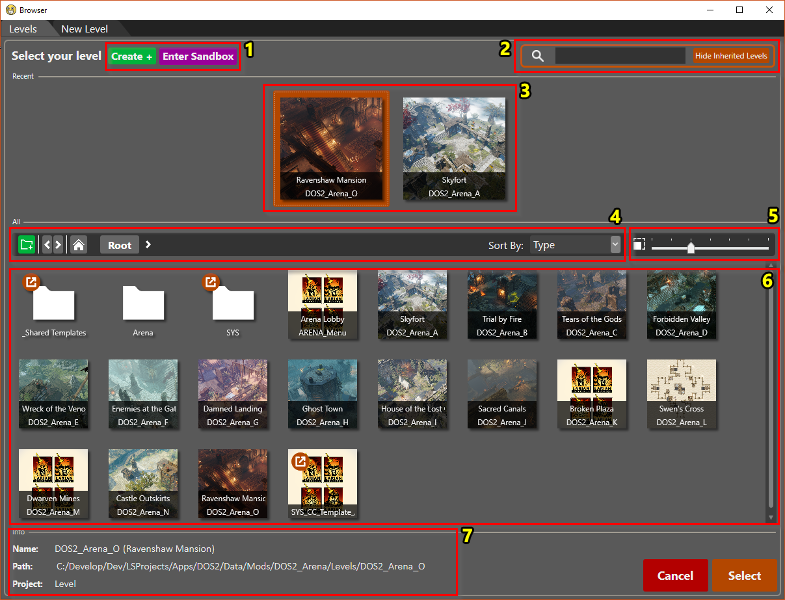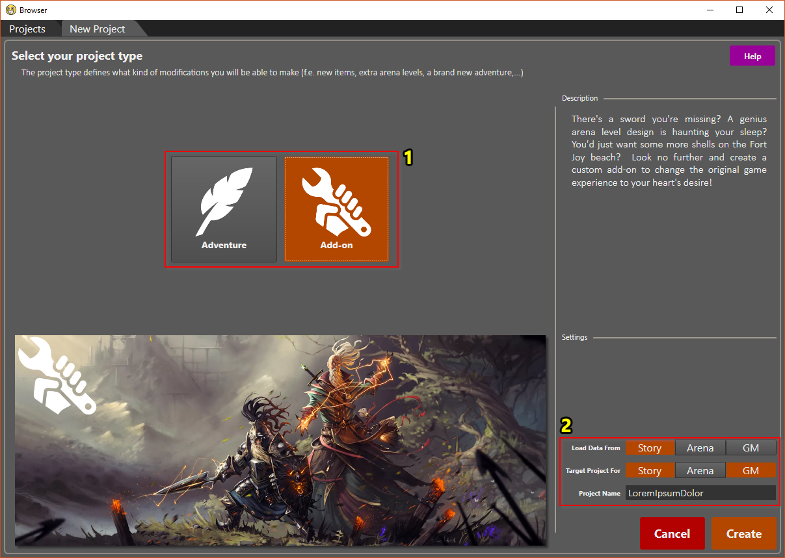Level browser: Difference between revisions
| Line 11: | Line 11: | ||
|} | |} | ||
== Existing | == Existing Levels == | ||
[[File:Levelbrowser-existing-annotated.png]] | [[File:Levelbrowser-existing-annotated.png]] | ||
<br /> | <br /> | ||
#Go to the "New | #Go to the "New Level" tab to create a new project or open the sandbox level | ||
#Filters (text and | #Filters (text and inherited levels) [CTRL + F] | ||
#Recently opened | #Recently opened levels (right-click to remove from list) | ||
#Navigation bar | |||
#Size slider [CTRL + scroll] | #Size slider [CTRL + scroll] | ||
#All | #All levels (right-click to rename/remove a level) | ||
#Info on the currently selected project | #Info on the currently selected level | ||
=== Inherited Levels === | |||
<p>When a project is dependent on another one, it inherits all data from that project. Thus, in a given project, it is possible to load the levels from all dependent projects. An inherited item is marked with the following icon: </p> | |||
{| class="wikitable" | {| class="wikitable" | ||
|- | |- | ||
Revision as of 11:36, 1 August 2017

Description
The level browser is used for loading and creating levels. Here you can see all existing levels, as well as the different types of new levels you can create.
| A similar browser exists for opening and creating projects: Project browser |
Existing Levels
- Go to the "New Level" tab to create a new project or open the sandbox level
- Filters (text and inherited levels) [CTRL + F]
- Recently opened levels (right-click to remove from list)
- Navigation bar
- Size slider [CTRL + scroll]
- All levels (right-click to rename/remove a level)
- Info on the currently selected level
Inherited Levels
When a project is dependent on another one, it inherits all data from that project. Thus, in a given project, it is possible to load the levels from all dependent projects. An inherited item is marked with the following icon:
| The editor preferences button (7) open the preferences window also available via the editor's Options tab. An explanation of the available settings can be found here: Editor preferences |
New Project
- Project type (Adventure or Add-on)
- Project Settings
Project Type and Settings
When creating a new project, there are two types to choose from: Adventure and Add-on. Adventures are full campaigns, like the main story. When creating your own campaign, you are expected to create your own story, or edit an existing one, and do the necessary scripting. Add-ons are (smaller) projects that can be toggled on/off while playing an Adventure. An example would be an add-on that adds 2 new swords to the game. Story (scripting) is not available in add-ons and an add-on is not required to be able to play an adventure.
Next to the project name, there are two more possible project settings. Both can later be altered in the Project Settings window (Project settings). Story, Arena and GM (Game Master) define our three game modes that are shipped with the game. Each of them is a project we created internally. Selecting any of them in "Load Data From" means that the new project will be dependent on the selection: it will load data, story,... from this project. In a similar fashion, selecting any in "Target Project For" means that, when someone downloads your published project, it will only be available for use in the game modes you selected.
| We refer to the available guides for more info on creating, publishing and downloading custom content: Larian guides |
| A more thorough, internal explanation on our system of different project types and custom content ("mods") can be found here: Modding internals |

